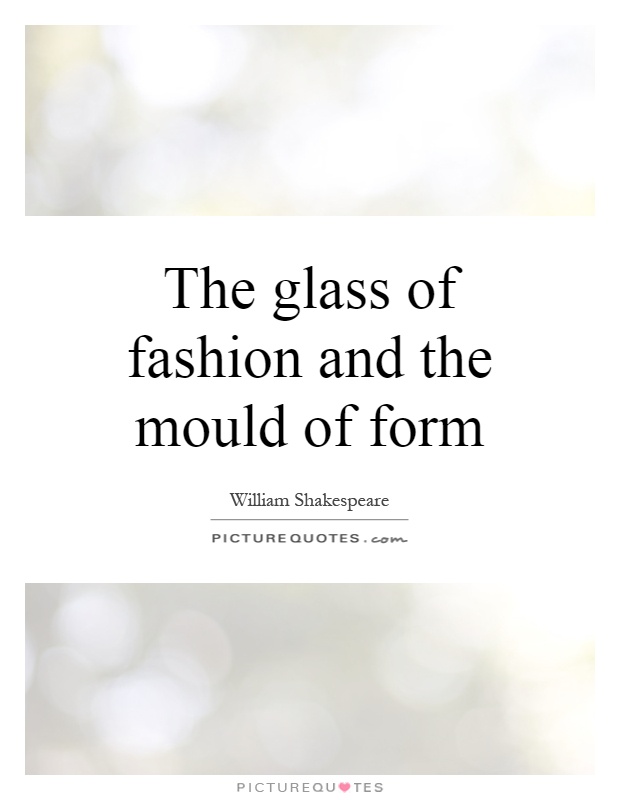The glass of fashion and the mould of form

The glass of fashion and the mould of form
In William Shakespeare's play "Hamlet," the character of Ophelia is described as "the glass of fashion and the mould of form." This phrase is used to highlight Ophelia's beauty and grace, as well as her ability to embody the ideal of femininity in the eyes of those around her.Ophelia is portrayed as a young woman who is both physically attractive and socially desirable. She is described as being delicate and ethereal, with a beauty that is both captivating and fragile. Her appearance and demeanor are seen as a reflection of the ideal of femininity in the Elizabethan era, where women were expected to be modest, obedient, and virtuous. Ophelia's beauty and grace make her a symbol of perfection in the eyes of those around her, and she is often admired and desired by the men in her life.
However, Ophelia's status as "the glass of fashion and the mould of form" also serves to highlight the limitations placed on women in Shakespeare's time. While Ophelia may be admired for her beauty and grace, she is ultimately constrained by the expectations and demands of the society in which she lives. As a woman, Ophelia is expected to be obedient and submissive, and her beauty is seen as a commodity to be traded and controlled by the men in her life.
The phrase "the glass of fashion and the mould of form" also suggests that Ophelia's beauty is not just a physical attribute, but a reflection of her inner qualities as well. Ophelia is not just a pretty face, but a woman who embodies the ideals of femininity in her thoughts, words, and actions. She is seen as a model of virtue and purity, and her beauty is seen as a reflection of her inner goodness and grace.
Overall, the phrase "the glass of fashion and the mould of form" in the context of "Hamlet" serves to highlight the complexities of Ophelia's character and the limitations placed on women in Shakespeare's time. Ophelia may be admired for her beauty and grace, but she is ultimately constrained by the expectations and demands of the society in which she lives.












 Friendship Quotes
Friendship Quotes Love Quotes
Love Quotes Life Quotes
Life Quotes Funny Quotes
Funny Quotes Motivational Quotes
Motivational Quotes Inspirational Quotes
Inspirational Quotes